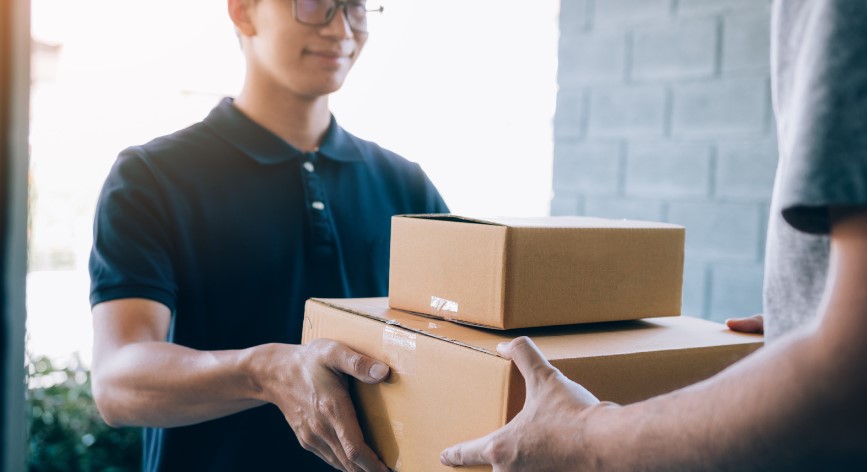Table of Contents
Urban Logistics: Navigating the Challenges of Last Mile Delivery in Cities
Urban areas across the globe are hubs of bustling activity, hosting a substantial portion of the world’s population. In recent years, e-commerce has significantly transformed how people shop, making last-mile delivery in cities a critical and complex facet of modern logistics. This article delves into the distinctive hurdles faced by delivery companies operating in urban environments, shedding light on the intricate process of navigating congested streets, addressing sustainability concerns, and adapting to the ever-changing urban landscape.

The Urban Logistics Landscape
The urban logistics landscape has significantly transformed in response to shifting consumer expectations. Today’s consumers increasingly seek swifter and more convenient delivery options, amplifying the importance of last-mile delivery within the broader supply chain. This pivotal stage, where goods transition from distribution centres to customers’ doorsteps, stands at the forefront of competition among delivery companies, including those operating as same day couriers in Birmingham. Meeting these evolving consumer demands is paramount for thriving in the urban delivery sector.
Challenges in Urban Last Mile Delivery

Operating in urban environments presents a unique set of challenges for delivery companies. Traffic congestion, a perennial issue in cities, profoundly impacts delivery times and costs. Navigating the maze of gridlocked streets can cause delays and increase fuel consumption, leading to higher operational expenses. Additionally, parking constraints add to the complexity of urban delivery. Finding suitable locations for delivery vehicles in densely populated areas is often a struggle, further exacerbating delivery challenges.
Moreover, the pressing concern of emissions and environmental impact cannot be ignored. The concentration of delivery vehicles in cities contributes to air pollution and greenhouse gas emissions, prompting a need for more sustainable practices.
Innovative Solutions and Technologies
The rise of technology and innovation has provided a lifeline to delivery companies grappling with urban logistics challenges. Advanced route optimisation algorithms and real-time traffic monitoring systems help companies navigate congested streets more efficiently, reducing delivery times and costs. Additionally, the integration of autonomous delivery vehicles and drones is being explored as a means to overcome traffic hurdles. These technologies promise to revolutionise urban last-mile delivery by reducing congestion-related delays and emissions.
Sustainable Urban Delivery Practices

The growing emphasis on sustainability has pushed delivery companies to adopt eco-friendly practices in urban logistics. Electric vehicles and hybrid delivery vehicles are becoming commonplace, significantly reducing emissions in city centres. Furthermore, companies are exploring the use of micro-hubs and urban consolidation centres to optimise deliveries and reduce the number of vehicles on the road. Sustainable urban logistics initiatives benefit the environment and align with consumer preferences for eco-conscious companies.
Future Directions and Urban Logistics Outlook
The future of urban logistics is poised for further transformation. The continued expansion of e-commerce is expected to fuel demand for faster and more flexible delivery options. Small companies must stay agile and embrace emerging technologies to meet these evolving consumer needs. Additionally, the integration of electric and autonomous vehicles, along with sustainable delivery practices, will likely become standard in urban logistics.
In conclusion, last-mile delivery in urban areas is a dynamic and challenging field that is pivotal in the modern supply chain. As consumers increasingly seek convenience and speed, delivery companies must navigate the complexities of traffic congestion, parking issues, and environmental concerns. Embracing innovative technologies and sustainable practices will be key to thriving in the ever-evolving urban logistics landscape, ensuring products can reach consumers in bustling cities like Birmingham and beyond efficiently and sustainably.



